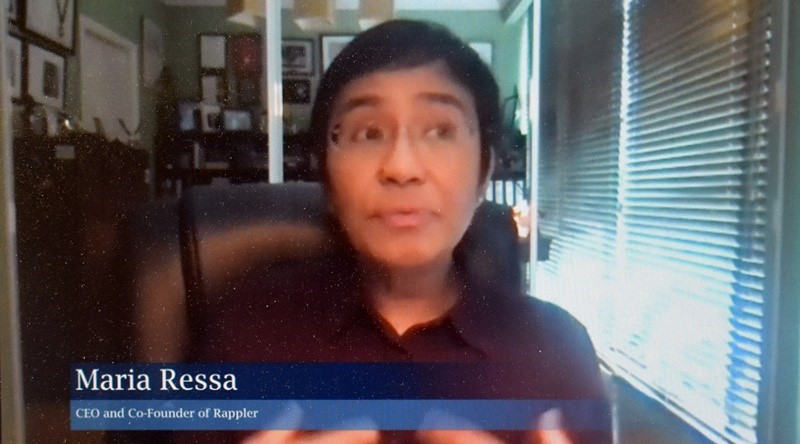Facing 'cyber libel' conviction, Maria Ressa calls for greater regulation of social media
Filipino-American investigative journalist Maria Ressa reiterated her calls for greater regulation of social media to clamp down on misinformation and fear Monday during a virtual event to mark World Press Freedom Day.
Ressa, who was convicted last year of so-called “cyber libel” in her work as co-founder and CEO of Philippine online news outlet Rappler, said social media has radicalized people and played on their worst vulnerabilities, especially with misinformation prevalent.
“[Misinformation] is highly contagious, and when you get infected, you become impervious to facts,” Ressa said. “It feeds our fears, it changes how we look at the world.”

The appearance by Ressa was one of three presentations at a National Press Club virtual event Monday in observance of World Press Freedom Day. The presentations highlighted the cases of journalists Ressa, Austin Tice and Emilio Gutierrez-Soto, each of whom is struggling against government repression or captivity. Each has received the John Aubuchon Award, the Club’s highest honor for press freedom.
Ressa has had 10 arrest warrants served against her in the Philippines, with the “cyber libel” charge alone carrying a seven-year prison sentence. She is a frequent critic of President Rodrigo Duterte, and international observers say those arrests are to try to intimidate her.
Criticism of her work has also been fueled by social media, a major news source in the Philippines. Ressa said personal attacks on platforms like Facebook and Twitter are meant “to shame me, to pain me to silence,” but the majority are designed to undermine her credibility.
“It’s meant to tear down trust in my reporting, in Rappler’s reporting,” she said.
In a bid to change the discourse online and fight back against what she described as an “atom bomb” being “dropped on our information ecosystem,” Ressa said regulations are needed so that social media is used more responsibly and that there are protections against misinformation. While it has democratized much about the world, she said it cannot be left alone in this state.
“We need to leave the best of what they do and leave guardrails on the worst of tech’s inclinations,” Ressa said.
Despite the personal risks, Ressa said her work and Rappler’s efforts to expose corruption and hold the Filipino government to account must continue. The more informed people become about their elected officials the better, she said, and it reduces the chance of her going to prison.
“What I do today will matter, will help determine what my future will look like,” Ressa said.
